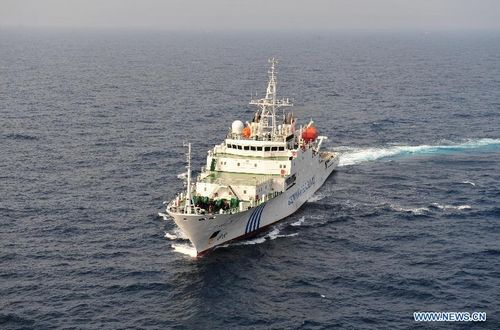Diaoyu Islands not ‘for sale’

China reiterated its sovereignty over the Diaoyu Islands in the East China Sea over the weekend, dismissing the Japanese government's latest nationalization plan which escalated the row between the two nations.
"The Diaoyu Islands and affiliated islands have been part of China's inherent territory since ancient times, over which the country's sovereignty has indisputable historical and legal grounds," Foreign Ministry spokesman Liu Weimin said in a statement released Saturday, "No one will ever be allowed to buy and sell China's sacred territory."
The Chinese government will take necessary measures to adamantly uphold its sovereignty, Liu continued.
Liu made the remarks after the Japanese government said on Saturday it is considering plans to purchase the Diaoyu Islands from a private owner, in the wake of a campaign initiated in April by Shintaro Ishihara, governor of Tokyo, which has sparked public outcry in China.
"We're considering the issue comprehensively from the viewpoint of maintaining and controlling (the islands) in a peaceful and stable manner. We're having various kinds of contacts," Japanese Prime Minister Yoshihiko Noda told reporters.
The Japanese government has already notified the local Tokyo government of its plan, the Kyodo News reported, citing unnamed government sources, while Ishihara, who waged the purchase campaign, indicated the metropolitan government would not give way to the central authority.
"I responded that Tokyo will first buy them considering the owner's circumstances," Ishihara told reporters.
Chinese experts also expressed concerns over the nationalization plan, urging the Japanese government to be wary of escalating the standoff with China.
"Japan's latest approach to the Diaoyu Islands through the nationalization plan is just a continuation of the farce started by a few politicians," Gao Hong, a deputy director of the Institute of Japanese Studies at the Chinese Academy of Social Sciences, told the Global Times.
"Ishihara's purchase plan has in fact resulted in tensions between the two sides," Gao warned, "The Japanese government should avoid violating the lowest tolerable compromise China could agree on."
China has long been insistent on putting aside disputes while co-developing the islands, whereas Japan has continued attempts to create rifts, arresting a Chinese fishing captain after a boat collision incident in September 2010 before unveiling the purchase plan in April by Ishihara.
While expressing support for the Chinese government's firm response to Japan's buying plan, Geng Xin, a deputy director of the Tokyo-based Japan-China Communication Institute, noted "we should not be over-concerned about the negative impact of the plan."
"Such a plan is likely to de facto help ease the tensions, as the Japanese government will be more level-headed in resolving the disputes compared to the extremist Tokyo governor," Geng explained, adding that "Japan's continued stirring of contention over the disputes only proves the fact that controversy surrounds the sovereignty, putting Japan in increasingly awkward situations."
Experts also said Japan's clinging to the purchase plan may also be a boon for China's cross-Straits relations.
Ma Ying-jeou, the incumbent Taiwan leader and chairman of the ruling Kuomintang also on Saturday criticized the nationalization plan, saying it is his presidential duty to protect the sovereignty and territorial integrity of the Diaoyu Islands.
Ma said Taiwan had been working to improve relations with Japan, and bilateral relations are good right now.
However, he added that no concessions could be made when it comes to issues related to the sovereignty, the Taipei Times reported.
Related Special Report:
Diaoyu Islands can't be 'bought': FM spokesman
Taiwan backs Diaoyu activists as mainland urges Japanese restraint